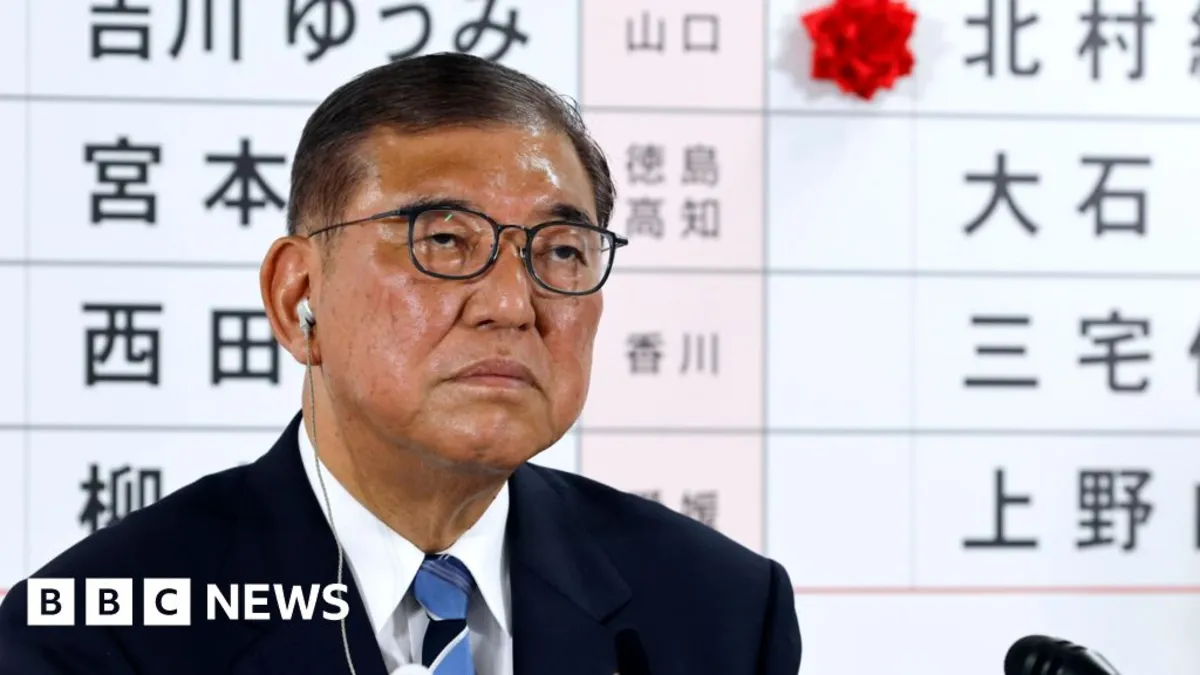
Japan's Prime Minister Shigeru Ishiba has publicly stated that he has no intentions of resigning, despite forecasts indicating that his ruling coalition may lose its majority in the upper house of Japan's National Diet. The elections took place on Sunday, amid rising discontent towards the coalition formed by the Liberal Democratic Party (LDP) and its junior partner, Komeito, primarily due to escalating prices and the looming threat of tariffs from the United States.
After the polls closed on Sunday, Prime Minister Ishiba expressed that he solemnly acknowledges the unfavorable results. He emphasized that his primary focus remains on ongoing trade negotiations. The coalition, which had already lost its majority in Japan's more influential lower house in the previous year, faces a potential defeat that could significantly weaken its influence in governance. To maintain control of the 248-seat upper chamber, the coalition needs to secure at least 50 seats. However, an exit poll conducted by public broadcaster NHK projected that the coalition may only win between 32 and 51 seats, indicating a challenging path ahead.
In this election, voters were tasked with filling half of the seats in the upper chamber, with each member serving a six-year term. Should the ruling coalition fail to secure more than 46 seats, it would represent their worst performance since the coalition's inception in 1999. Jeffrey Hall, a lecturer in Japanese Studies at Kanda University of International Studies, noted that an increase in support for more right-wing parties has eroded the LDP's conservative base. Many supporters of former Prime Minister Shinzo Abe view Ishiba as not conservative enough, believing he lacks the strong nationalistic and anti-China sentiments that characterized Abe's leadership.
Hall pointed out that a portion of the LDP’s support has shifted to the Sanseito party, which is now voicing opinions previously unspoken within the upper house, including conspiracy theories and strong revisionist views on history. The LDP, led by Ishiba, has been a dominant force in Japanese politics since 1955, albeit with frequent changes in leadership.
The anticipated election results highlight a growing frustration among voters regarding Ishiba’s leadership. He has faced challenges in instilling confidence as Japan grapples with economic difficulties, a rising cost-of-living crisis, and crucial trade negotiations with the United States. Many citizens are particularly concerned about inflation—especially the rising price of rice—and a series of political scandals that have plagued the LDP in recent years.
Historically, the last three LDP leaders who experienced a majority loss in the upper house stepped down within two months. Analysts have suggested that a significant loss in this election could lead to a similar outcome for Ishiba. This scenario would likely pave the way for notable figures within the LDP, such as Sanae Takaichi, who was Ishiba’s runner-up in last year's leadership election; Takayuki Kobayashi, a former economic security minister; and Shinjiro Koizumi, the son of former Prime Minister Junichiro Koizumi, to potentially vie for leadership. Regardless of the eventual outcome, a change in leadership within the ruling party could trigger political drama and further destabilize Japan's government, particularly at this critical juncture in US-Japan trade negotiations.